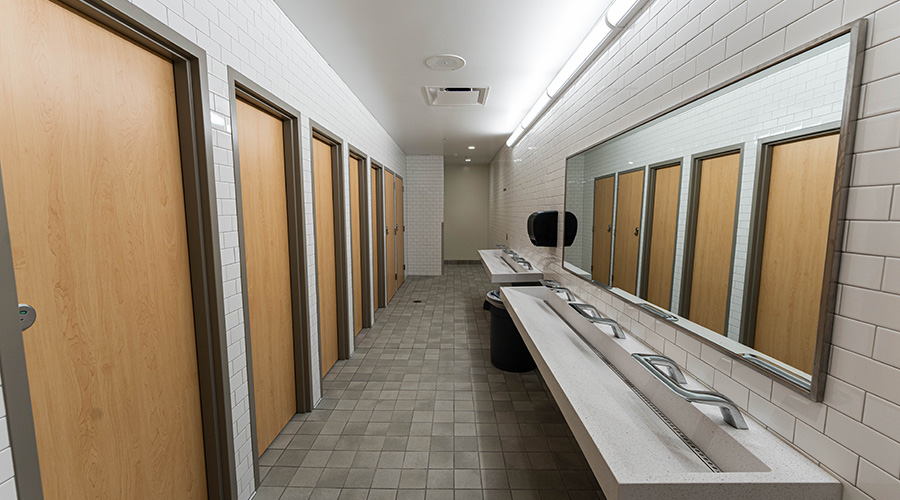Lesson Learned: When Security Patrols Stopped, Abandoned School Was Quickly Gutted
Vetal Elementary School in Brightmoor, a northwestern neighborhood in Detroit, was built in 1927 and was closed three years ago when Detroit Public Schools consolidated three area schools into a newly constructed facility. For the first 18 months, Detroit Public Schools kept an eye on the 72,000-square-foot property with remote surveillance, promptly chasing out intruders with teams of dogs, says Jeff Adams, board member of the Brightmoor Alliance. But as soon as the property was leased out to an area pastor with hopes of turning the school into a joint campus for his church and a vocational training facility, "it was like a green light had gone on for the scrappers." Detroit Public Schools removed the security system and the patrols, and the facility was dismantled. Any and all metal was ripped out — switchgear, HVAC components, wiring, even the chain link fence. Every toilet was smashed to get at the fittings. In a matter of months, vandals caused damage that will take an estimated $4 million to repair.
Detroit is the mainstream example of a city gone bust and taking its schools down with it. But even in places like Washington, D.C., a school facility can linger in limbo. The Gage School in the northwest neighborhood of Bloomingdale sat vacant for 30 years, bouncing between ownerships that did nothing to redevelop the property. Built in 1906, the facility is situated near Howard University and the neighborhood had an appetite for multifamily residential development, according to William Herman, president of Urban Realty Advisors, who ultimately bought the property and redeveloped it into 92 condos. But not before the slate roof had caved in and all services were either vandalized or in disrepair, requiring costly restoration. Herman says that, even in Georgetown, another school facility likewise sat vacant for many years before the district released it.
One of the problems, from a developer's perspective, is that the school district in D.C. doesn't have a systemized way of disposing of its facilities so that the same rules apply every time, Herman says. "The Department of Education is politically strong, and their real estate holdings are valuable to others," he says. "So it's a control mechanism." By his estimate, there are 15 closed schools with no plan for disposition in the D.C. area.
Related Topics:














